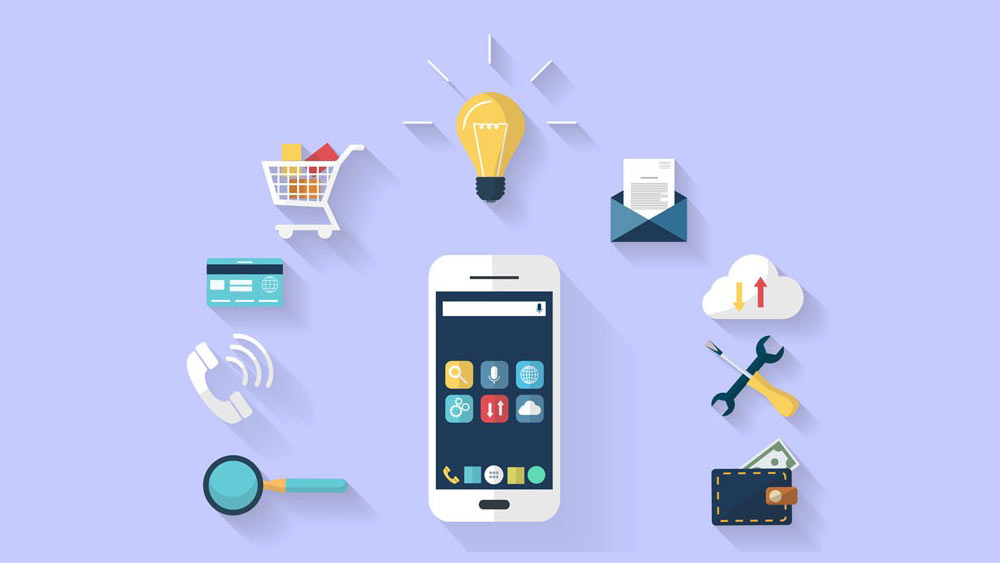Some software applications are for supporting your business. Like the internal apps employees use to request time off, or collaborate remotely on a project. And some applications, of course, are the product.
But there’s another type of app that often goes overlooked: custom-built apps designed to make existing products better (or services, for that matter – we’ll consider them the same as products for this discussion).
I want to discuss these custom-built apps today because they’re extremely important for your business. Why? Because these custom-built apps can provide strategic, competitive advantages for your product.
In this post, I’ll discuss four main ways in which a custom app can add value to your product. And if you’re still not sure how an app could benefit your specific product, just request a free consultation and we’ll work with you to envision it.
Your own custom-built app could focus on just one of these areas, or spread across all four. I’ll give you some real world examples for each category. And I’ll show how one application, a conference attendee app for Connecting Point Marketing Group (CPMG), actually touches on all four benefits.
Here are the four reasons why you should build a custom app for your products:
So Customers Can Take Your Product With Them
Your product might not be easily portable – or not portable at all. In fact, many products experience this shortfall. Either it’s too bulky to transport (like a TV), or it’s not the sort of thing you’d carry everywhere you go (like a map). Services especially fall in this category, because with most services you can’t provide it unless you’re there.
Adding a customized app to interface with your product changes all that. Suddenly, you can access those features remotely – even when the product or service is not physically available.
Examples: Shopping sites are a major example of this. You can take the whole store home with you on a smartphone app. You don’t even have to visit the store in the first place, you can browse, research, and buy right from the app. Home automation systems are another example. If you forget to lock your doors or turn off lights, you can do so remotely with an app. And now you can even take your HBO subscription with you, watching the latest episode of Game of Thrones on HBO-to-Go.
In our CPMG example, the app became the hub of each event. Instead of constantly reporting back to a centralized welcome station for schedules, directions and creating appointments, the attendees carry all the information they need packed right into the app. And instead of lugging around a steadily growing stack of handouts, they can view conference materials right on their phones.
So Customers Can Enjoy New Benefits
Some apps expand the capabilities of your product, allowing it to do more. These new benefits should enhance the value of your product and make it more compelling for buyers. In this way, a custom-built application can give your product a serious competitive advantage.
Examples: A printer app that allows you to send remote printing jobs from your phone. A garage door opener with an app that uses your phone’s GPS to signal when you’re near and automatically opens your door as you’re pulling in the driveway. A tourist attraction with an app that leads you on a self-guided tour.
In the CPMG example, their new conference app gave presenters deep drilldowns into their ratings and feedback that had not been available before. It also sent notifications, a new feature which improved the scheduling process and translated into more actual one-on-one meetings (and fewer missed appointments) per attendee.
So Customers Can Order Service, Supplies or Parts
Another way a customized app can improve a product is to give users easy access to ordering new supplies and replaceable parts. By streamlining this process, users experience less frustration from downtimes. They’re also less likely to look for and discover other sources for their supplies. In some cases, the app can even monitor the product and trigger a reminder to order the required parts or supplies – before they’re actually needed.
Examples: A soda distribution app that triggers new orders when bottles or syrup are running low. A banking app that allows you to find the nearest affiliated ATM or branch. A car service application that reminds you when your next oil change or service is due and sets up your appointment for you. And how about a coffee-maker app that reminds you to change your charcoal filter – when you walk into a store?
In our CPMG example, one of the main benefits of the conference app was to allow attendees to schedule their own “service.” In this case, it meant setting up their own one-on-one meetings with other executives. Previously, the organizers needed to facilitate most of the scheduling, and this was a cumbersome process. Now, attendees can view the availabilities of each presenter and schedule appointments right from the app at their own convenience.
So Customers Can Experience Better Customer Service
Finally, an app can offer a variety of improvements for your customer service. It can provide an on-the-go user manual and FAQ to answer most questions and cut down on support calls. If that doesn’t help, your app could enable users to request customer support straight through their phones. This frees them from the hassle of looking up contact information and improves their perception of your service.
Examples: A mobile carrier app that connects you with technical support at the push of a button. A sewing machine app with dozens of tutorial videos so you can get the most out of your machine. A solar power app that offers advanced tips on saving and storing energy – as new technology appears.
In the CPMG example, much of the customer service previously required by attendees is now handled by the app. Even activities such as rating presentations are done through the app, eliminating the survey printing and data entry costs while achieving higher participation rates. Plus, attendees can now post their comments and feedback in a variety of social media channels, providing more post-event engagement (as well as social proof) for the presenters.
How Could a Custom App Make Your Product or Service Better?
As you can imagine, there are many ways a custom-built application can make virtually any product better. Some expand the usefulness of your product, while others make it easier to use. Sometimes the synergy with an app is obvious, while other times it takes thinking outside the box to see how an app could provide value. Either way, Ascendle is ready to consult with you and discover new ways to make your products better.






